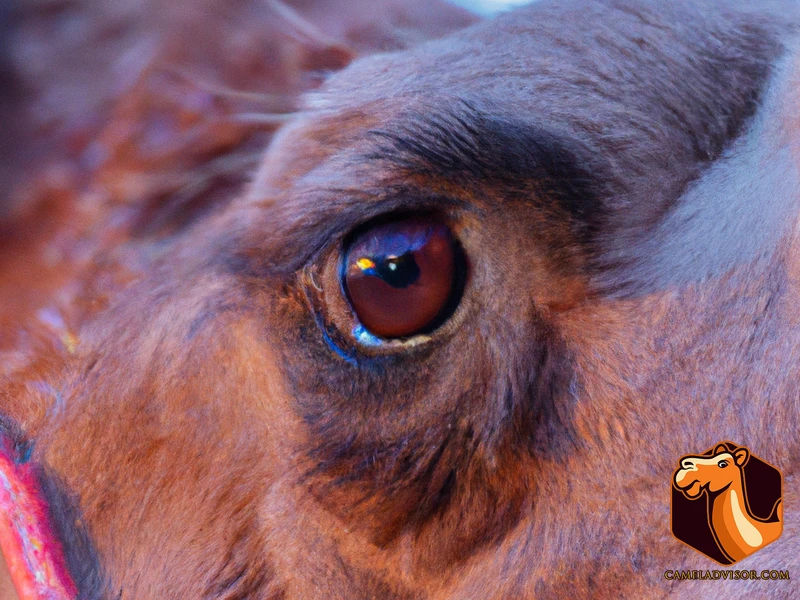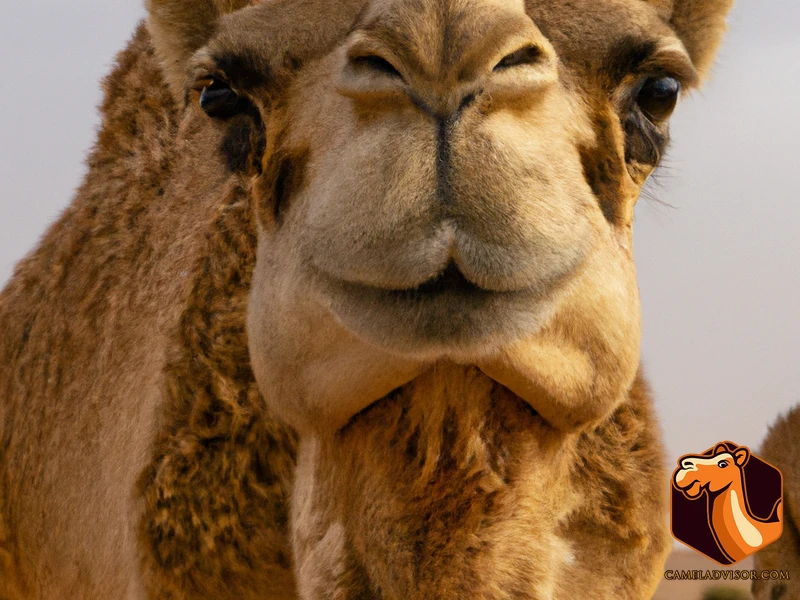Camel racing, a popular sport in many regions, is not just about the physical fitness of the camels, but also about the mental preparedness of both the camel and the jockey. While it is easy to focus solely on the physical aspect of this sport, ignoring the importance of mental preparation can limit the performance of both the camel and the jockey. This begs the question: how exactly does mental preparation factor into camel racing? In this article, we will delve deeper into the role of mental preparation in racing camel training, exploring the benefits of various techniques such as developing focus, building resilience, and motivation, and how to apply them effectively in your training regimen.
Contents
- Why Mental Preparation Matters in Camel Racing
- Benefits of Mental Preparation in Camel Racing
- Overview of Mental Preparation Techniques
- Developing Focus for Racing Camels
- Building Resilience for Racing Camels
- Motivation Techniques for Racing Camels
- Applying Mental Preparation in Camel Training
- Conclusion
- Frequently Asked Questions
- References
Why Mental Preparation Matters in Camel Racing
Mental preparation is one of the most important aspects of racing camel training, and is often overlooked. Many assume that it’s all about physical training and nutrition when it comes to racing camels, but that’s simply not true. A strong mental game can make all the difference between a winning and losing racer.
So, why does mental preparation matter in camel racing?
Firstly, racing camels operate under immense stress and strain during races. The pressure to perform and win is high, and the conditions can be incredibly challenging. Without mental preparation, racers and their camels are at risk of succumbing to the stress and pressure, leading to suboptimal performance, injuries, and burnout.
Secondly, racing camel training is a long-term process that can be fraught with setbacks and difficulties. Mental strength and resilience are key to overcoming these challenges and staying motivated throughout the training period.
So, what are the benefits of mental preparation in camel racing?
Effective mental preparation techniques help racers develop focus, resilience, and motivation – all qualities that are essential for success in racing. Athletes with a strong mental game can stay calm under pressure, perform at their best even in adverse conditions, and persist even when progress seems slow or stalled.
Mental preparation can also have a positive impact on physical performance. When racers are mentally focused and motivated, they tend to execute physical movements with greater precision and efficiency, leading to better racing times and results.
Mental preparation is essential for maintaining the well-being of racing camels. By reducing stress levels and increasing resilience, racers can help their camels perform at their best without risking injury or burnout.
In conclusion, mental preparation is a crucial component of racing camel training. It not only promotes mental focus, resilience, and motivation but also contributes to optimal physical performance and well-being. Racers who neglect mental preparation risk negatively impacting not only their performance but also the health and safety of their camels. It is important to incorporate mental preparation and techniques in the training regimen alongside physical training, nutrition, and race preparation.
Benefits of Mental Preparation in Camel Racing
Mental preparation is an integral part of any racing discipline, including camel racing. The benefits of mental preparation in camel racing are numerous, and cannot be overlooked. For a racing camel trainer or jockey, it is crucial to have a positive and focused mindset. Mental preparation not only impacts the performance of the athlete but also their physical health and well-being.
One of the main benefits of mental preparation in racing camels is the ability to improve focus and concentration, which helps to eliminate distractions during the race. When a trainer or jockey is mentally prepared, they can better understand the behavior and psychology of their camel, anticipate their movements, and ensure their safety. Mental preparation helps racers to remain calm and composed under stressful situations, which is essential in determining the outcome of the race.
Another significant benefit of mental preparation in camel racing is building resilience. Racing camels face many challenges, including injuries, fluctuations in temperature, and dietary changes. Mental preparation helps to prepare the trainer or the jockey to anticipate setbacks, overcome adversity, and perform their best even in adverse situations. This not only helps the jockey but also the performance of the camel, as a healthy and resilient trainer is more likely to make better decisions during the race.
Mental preparation is also essential for motivation. Camel racing is a demanding sport, so it’s important to stay motivated throughout the training and races. It’s easy to get discouraged by setbacks or failures, but mental preparation helps to stay positive, set realistic goals and focus on achieving them. It also helps to keep the camel motivated, by developing a close bond and understanding with the animal, the jockey can motivate them to run faster and perform better.
Mental preparation techniques also help to increase the overall performance abilities of racing camels. By being mentally prepared, the jockey can work on building their endurance, strength, and stamina much more efficiently. Endurance training for racing camels is heavily dependent on mental conditioning, as it not only helps to increase their endurance but also their mental ability to handle extended periods of physical activity.
Incorporating mental preparation techniques into racing camel training provides a variety of benefits that enhance the overall performance of racers. These benefits include improved focus, resilience, motivation, and the ability to handle adversity. Mental preparation is not a replacement for physical training and nutrition but an essential addition to it. Racers who understand the importance of mental preparation alongside physical training and nutritional regimes can better harness their full potential in camel racing.
(Internal Link: Racing Camel Training Tips)
Overview of Mental Preparation Techniques
Mental preparation is an essential aspect of any camel racing training program, as it helps to optimize performance and improve results. Mental preparation techniques enhance focus, resilience, and motivation, enabling the camel racing team to overcome adversity, stay focused, and remain motivated throughout the training and competition phases.
One of the main techniques for mental preparation is mindfulness meditation, which involves calming the mind and focusing attention on the present moment. Meditation can help reduce stress and anxiety, improve concentration, and develop emotional regulation skills, all of which are crucial for effective camel racing performance.
Another technique is visualization, where the athlete or the trainer visualizes the desired outcome of a particular race. This technique involves creating a mental image of the ideal scenario, including sights, sounds, smells, and other feelings related to the event. Visualization is a powerful way to build confidence, as it helps the camel racing team members to see themselves as successful, achieving their goals.
Goal-setting is also an essential technique for mental preparation, as it helps the trainer and the team to set realistic, achievable goals and to work towards them step by step. This technique is critical in maintaining focus and motivation throughout the training period, as it helps to measure progress and celebrate successes.
A positive mindset is another key component of mental preparation, as it allows the camel racing team to reframe challenges and setbacks as opportunities for growth and learning. This technique involves cultivating positive self-talk, focusing on strengths, and practicing gratitude, to stay optimistic and hopeful, even in difficult times.
Finally, a balance between training and rest is essential for effective mental preparation. Rest is as important as training, as it allows the mind and body to recover and recuperate, thus preventing burnout and promoting long-term success.
Mental preparation techniques are essential for any successful camel racing training program. Combining mindfulness meditation, visualization, goal-setting, a positive mindset, and training/rest balance can optimize performance, improve resilience, and enhance motivation, all of which contribute to racing success.
Developing Focus for Racing Camels

Developing strong focus is crucial for success in racing camel training. Focus allows trainers and riders to maintain full attention on the task at hand, and make quick, accurate decisions under pressure. There are various techniques for developing focus, both for the camel and the rider.
Training Techniques for Developing Focus
Some training techniques that can improve focus in racing camels include repetitive training exercises, such as practicing the same race track multiple times a day or running uphill courses. These exercises can help the camel build muscle memory and learn to navigate the racing environment with precision and ease. It is also essential to vary the training routine, so that the camel does not become bored, as boredom can lead to a loss of focus.
Incorporating obstacles and challenges into the training regimen can promote focus and problem-solving skills. For example, setting up a course with jumps or obstacles that the camel must navigate around or over can improve coordination and focus.
Meditation and Visualization for Focus
Meditation and visualization are techniques that can improve focus for both the rider and the camel. Meditation is the process of focusing the mind on a particular object, thought, or activity to train attention and awareness. Practicing meditation regularly can help calm the mind, reduce anxiety and increase overall focus.
Visualization involves mental practice of the race or specific race scenarios, focusing on performance and desired results. Visualizing a successful race, in great detail, can help the camel and the rider build confidence, stay focused, and increase their chances of success.
By developing a strong focus, the rider and the camel can work together as a team and perform their best during races.
Internal link: To learn more about racing camel training, read our guide on Racing Camel Training.
Training Techniques for Developing Focus
Developing focus is a key component in mental preparation for camel training. It is important to train the mind to stay present and focused during the race. One effective technique for developing focus is through regular meditation.
Meditation for Developing Focus: Meditation is a powerful tool for developing focus in both the camel rider and the camel. It helps calm the mind and increase concentration, allowing for improved performance during the race. Practicing meditation can also help reduce anxiety and nervousness, which can be particularly useful during high-pressure situations such as races.
To start meditating, find a quiet and comfortable place to sit. Close your eyes and focus on your breath. As thoughts come to your mind, acknowledge them and let them go without attaching to them. Continue to focus on your breath and aim to do this for 10-15 minutes daily. Over time, this practice can improve your focus during the race.
Other techniques for developing focus in camel training include visualization exercises and goal-setting. Visualization is a technique where the rider imagines themselves and their camel performing at their best during the race. This technique helps build confidence and focus.
Goal-setting is another useful technique for developing focus. Setting specific goals for yourself and your camel can help to create a sense of clarity and direction. These goals can be used to motivate and inspire yourself and your training team, as well as to measure progress.
Training Techniques for Developing Focus: In addition to mental techniques, there are also physical training techniques that can help to develop focus. One such technique is repetition. Camel riders can practice specific movements and techniques until they become second nature, allowing them to focus on their surroundings rather than the techniques themselves during the race.
Another technique is to incorporate distractions into training sessions. For example, using loud music or other distractions can help to simulate the chaos and noise of a race. This technique can help the rider and camel to learn how to stay focused in a high-stress environment.
Developing focus is a critical component of mental preparation in camel training. Techniques such as meditation, visualization, and goal-setting can be used to develop mental focus, while physical training techniques such as repetition and distraction training can be used to build focus and concentration. By incorporating these techniques into your training regimen, you can increase your chances of success on the racing camels field.
Meditation and Visualization for Focus
One effective technique for improving focus in camel racing is through the practice of meditation and visualization. This technique involves taking time to sit quietly and focus on your breath, clearing your mind of any distracting thoughts or worries. This can be done in a quiet space where you won’t be disturbed, or even in the stable with your camel.
Visualization, on the other hand, involves using your imagination to create a mental image of a successful race. This allows you to see yourself and your camel crossing the finish line in first place, experiencing the thrill of victory and feeling proud of your hard work and preparation. By visualizing success, you can reinforce a positive mindset, build confidence, and increase your motivation to succeed.
To begin, find a quiet and comfortable space where you can sit for a few minutes without any distractions. Start by focusing on your breath, inhaling and exhaling deeply and slowly. If any thoughts or worries come to mind, don’t judge or engage with them, simply acknowledge them and then let them go.
Then, begin to visualize a successful race, seeing yourself and your racing camel performing at your best. Imagine the intense focus you need to maintain, the feeling of the wind on your face as you race, and the joy of crossing the finish line in first place. Allow yourself to feel the emotions associated with a successful race, such as pride, excitement, and accomplishment.
Repeat this visualization practice regularly, ideally every day, to help reinforce a positive mindset and build your focus and motivation for racing. It can be especially effective when combined with other mental preparation techniques, such as goal-setting and positive self-talk.
Remember that mental preparation is just one aspect of camel racing training. For more tips on optimizing your camel’s performance, check out our articles on the best training techniques for racing camels, endurance training for racing camels, nutritional requirements for maximizing performance, and the importance of physical training for racing camels.
Building Resilience for Racing Camels
Racing camels, like any other athlete, need to have resilience in order to succeed in their sport. Resilience is the ability to overcome setbacks and adversity, and it’s a crucial factor in camel racing. Resilient racing camels can keep going even when they’re tired, can handle changing track conditions, and can adjust to the race strategy of their competitors.
Understanding Resilience in Camel Racing
To build resilience in racing camels, it’s important to understand what it means in the context of competition. For camels, resilience means being able to run a race that’s physically and mentally challenging without giving up or slowing down.
One way to create resilience is through consistent and challenging training. This can include endurance training, speed work, and obstacle courses that mimic the conditions of a race. By pushing themselves in practice, camels can build the physical and mental toughness needed to succeed in competition.
Overcoming Setbacks and Adversity in Racing
In camel racing, setbacks and adversity can come in many forms. A camel may experience injury or illness, there may be unexpected changes in weather or track conditions, or the competition may be tougher than expected. To overcome these setbacks, resilient racing camels need to be able to adapt quickly and stay focused on their goals.
One way to build this adaptability is through exposure to different racing conditions. For example, training in hot and cold weather, on different types of tracks, and with different competitors can help camels develop the skills to adjust quickly to unexpected situations.
Another way to build resilience is through mental preparation. Visualization, positive self-talk, and relaxation techniques can all help a racing camel maintain focus and motivation even in difficult or stressful situations.
Building resilience in racing camels requires a combination of physical training, exposure to a variety of racing conditions, and mental preparation. By developing these skills, camels can increase their chances of success in the highly competitive world of camel racing.
Understanding Resilience in Camel Racing
Resilience is a crucial trait for any camel racer to possess. In the context of camel racing, resilience refers to an individual’s ability to bounce back from setbacks and adversity. The sport of camel racing can be physically and mentally demanding, and setbacks are inevitable. Races can be unpredictable, and even the most well-trained camels may encounter unexpected challenges.
Resilience, therefore, plays an essential role in helping camel racers persevere through difficult times. Those who possess resilience are better equipped to overcome setbacks and continue working towards their goals despite the obstacles they may face.
In camel racing, resilience can manifest in different ways. For racers, it may mean being able to handle the physical demands of the sport and push through pain and exhaustion. For the camels themselves, resilience may refer to their ability to recover from injuries or setbacks and continue to perform at their best.
But resilience is not just about physical strength. It also involves mental toughness and emotional stability. Camel racers who possess resilience are able to remain calm and focused under pressure, and they can manage their emotions effectively.
In order to develop resilience, camel racers must focus on building their mental and emotional strength. This can involve practicing techniques such as meditation or visualization, which can help to cultivate a sense of calmness and focus even in the face of challenging situations.
Additionally, camel racers can work on building their confidence and self-belief, which can help them to remain resilient even when faced with setbacks or failures. Setting realistic goals and focusing on incremental progress can also help to build resilience, as it allows racers to see their progress over time and feel a sense of accomplishment.
Resilience is a crucial trait for camel racers to possess. By building their mental and emotional strength, camel racers can better handle the challenges of the sport and continue working towards their goals with confidence and determination.
Overcoming Setbacks and Adversity in Racing
Racing camels is not an easy task, and it is common to face setbacks and adversity during the process. However, it is essential to overcome these challenges to continue with the training and reach success. The key to overcoming setbacks and adversity is building resilience.
Understanding Resilience in Camel Racing
Resilience is the ability to bounce back from challenges and continue to work towards your goals. In camel racing, resilience is vital, as setbacks and injuries can occur both during training and in races. It is important to have a positive mindset and maintain focus to overcome these obstacles.
Overcoming Setbacks
Setbacks can take various forms, such as injuries to the camel or the trainer, financial difficulties, or unexpected weather conditions that affect the training schedule. However, it is crucial not to let these setbacks discourage you from the training process.
One way to overcome setbacks is to evaluate the situation and come up with a new plan. For example, if an injury has occurred, it may be necessary to adjust the training routine to allow for recovery time. Alternatively, if financial difficulties arise, finding creative solutions such as seeking sponsorship or cutting back on expenses can help overcome the setback.
Another crucial aspect of overcoming setbacks is to maintain a positive mindset. It is normal to feel frustrated or disappointed when faced with setbacks, but focusing on the positive aspects of the situation can help shift your mindset towards a more resilient perspective.
Adversity in Racing
In addition to setbacks, adversity can also arise during races. Camel racing involves competition, and it is essential to be prepared for the possibility of losing or facing unexpected challenges during a race.
To overcome adversity during a race, it is important to maintain focus and composure. By staying focused on the race and not getting distracted by external factors, you can increase your chances of success. Additionally, it can be helpful to have a pre-race routine that includes visualization and positive self-talk to help prepare for the race.
Building Resilience
Building resilience takes time and effort, but it is an essential aspect of camel racing. One way to build resilience is to practice mindfulness exercises such as meditation and deep breathing techniques. These exercises can help clear the mind and reduce stress levels, allowing you to approach setbacks and adversity with a clearer perspective.
Another way to build resilience is to practice positive self-talk. By focusing on positive affirmations and avoiding negative self-talk, you can develop a more resilient mindset that can help you overcome challenges.
Overcoming setbacks and adversity is a crucial aspect of camel racing. By building resilience and maintaining a positive mindset, you can overcome obstacles and work towards success in this challenging sport.
Motivation Techniques for Racing Camels

Motivation is an essential factor for successful racing camel training. Without it, both the camel and the trainer may lose their focus and dedication, leading to a lack of progress in their training. It is crucial to develop motivation techniques that can help maintain enthusiasm and a positive attitude.
Motivating Yourself and Your Camel
Motivation comes from within, and as a trainer, it is important to find ways to keep yourself motivated during training sessions. The same goes for your camel. One way to motivate both yourself and your camel is to introduce variety into your training regimen. For instance, you can try switching up the timing or location of your training sessions, or introducing new obstacles for your camel to navigate.
Another way to motivate your camel towards success is to offer them positive reinforcement. This can be in the form of treats or praise, such as verbal cues or a pat on the back. When your camel does something well, be sure to reward them for it. This will strengthen the bond between you and your camel and encourage them to do well in the future.
Goal-Setting for Racing Success
Setting achievable goals is an effective way to stay motivated during the training process. Try breaking down long-term goals into smaller, more manageable ones, which will give you and your camel a sense of progress and accomplishment along the way. Make sure that your goals are realistic and specific, such as reaching a certain speed or completing a specific obstacle course.
As you and your camel progress towards your goals, be sure to celebrate your successes. This can include giving your camel a day off, or treating yourself to a reward. Celebrating your achievements along the way will keep you motivated and help you push towards your ultimate goal.
Motivation is a key factor in successful camel racing training. By introducing variety into your training regimen, offering positive reinforcement, setting achievable goals, and celebrating your successes, you and your camel can stay motivated and focused on the path towards racing success.
Motivating Yourself and Your Camel
When it comes to racing camels, motivation is key for success. It’s important to not only motivate yourself as the rider/trainer, but also to motivate your camel. Motivation can be defined as the driving force behind our actions and behaviors. In this case, it’s what will push both you and your camel towards success.
Finding What Motivates You and Your Camel
First and foremost, it’s important to understand what motivates both you and your camel. For you, it could be the thrill of competition, the desire to win, or simply the love of working with and riding camels. For your camel, it could be their natural instinct to run or simply the rewards they receive for performing well.
Reward-Based Training
One of the most effective ways to motivate your camel is through reward-based training. This involves rewarding your camel with treats or praise for good behavior, such as following commands or completing a race successfully. By doing this, you are incentivizing your camel to perform well and associating positive feelings with racing.
Goal-Setting
Setting goals is also a great way to stay motivated, both for yourself and your camel. Set achievable but challenging goals for each training session or race and work towards them together. By achieving these smaller goals along the way, you’ll gain confidence and it will help keep you motivated for the bigger ones.
Positive Reinforcement
Another effective motivational technique is positive reinforcement. This involves acknowledging and praising your camel for good behavior or successful races. Camels respond well to praise and will often perform better when they feel appreciated and valued.
Maintaining Motivation
Maintaining motivation can be difficult, especially during setbacks or when progress is slow. In these situations, it’s important to stay focused on the end goal and the reasons why you started this journey in the first place. Don’t let temporary setbacks or failures discourage you or your camel. Use them as a learning experience and motivation to do better next time.
Finding what motivates both you and your camel, utilizing reward-based training, setting achievable goals, and providing positive reinforcement are effective techniques for motivating yourself and your camel in racing. It takes time and effort, but with the right mindset and approach, you can achieve great success in camel racing.
Goal-Setting for Racing Success
Setting clear, achievable goals is an important part of mental preparation for racing camels. Whether you’re a seasoned professional or just starting out, having a specific goal in mind can help you stay motivated and focused on what you want to achieve.
The Benefits of Goal-Setting
One of the biggest benefits of goal-setting in camel racing is that it helps you prioritize your training and focus your attention on what really matters. When you know exactly what you want to achieve, you can create a plan that is tailored to your specific needs and work steadily towards your goal.
Setting specific, measurable goals can also help you track your progress and see how far you’ve come. This can be incredibly motivating and give you the confidence to keep going, even when things get tough.
How to Set Goals for Camel Racing
When setting goals for racing camels, it’s important to be both realistic and ambitious. You want to set goals that will push you out of your comfort zone and help you reach your full potential, but you don’t want to set goals that are so unattainable that they become discouraging.
To set effective goals, start by thinking about what you want to achieve. Do you want to win a particular race, improve your camel’s performance, or simply become more confident in your abilities as a trainer? Be as specific as possible about what you want to accomplish.
Once you have a clear idea of your overall goal, break it down into smaller, more achievable steps. This will help you create a roadmap for success and ensure that you’re making steady progress towards your ultimate goal.
Tips for Goal-Setting
Here are some tips to help you set effective goals for racing camels:
– Make your goals specific and measurable. Avoid vague goals like “improve performance” and instead focus on specific metrics or achievements that you can measure and track over time.
– Be ambitious but realistic. Set goals that challenge you, but that are achievable with hard work and dedication.
– Write down your goals and review them regularly. This will help you stay focused and motivated, and keep your goals top-of-mind as you go through your training.
– Celebrate your successes along the way. Take time to acknowledge and celebrate each small victory as you work towards your ultimate goal. This will help you maintain momentum and stay motivated in the long run.
Conclusion
Goal-setting is an essential part of mental preparation for racing camels. By setting clear, specific goals and breaking them down into achievable steps, you can prioritize your training, track your progress, and stay motivated on your path to racing success. Remember to be ambitious but realistic, and to celebrate your successes along the way. With dedication and hard work, you can achieve your goals and become a successful racing camel trainer.
Applying Mental Preparation in Camel Training
In order to successfully apply mental preparation techniques in camel racing, it is important to take a step-by-step approach and incorporate different strategies as part of a comprehensive training regimen.
Integrating Mental Preparation into Your Training Regimen
One effective way to incorporate mental preparation into your training regimen is to start by setting specific goals that are aligned with your vision and aspirations for racing success. This can help you stay focused and motivated, especially during periods of adversity or setbacks.
It is also important to establish consistent routines and habits that can help promote mental and physical well-being. This could include activities such as meditation, visualization, or breathing exercises that can help calm the mind and reduce stress.
Another key aspect of integrating mental preparation into your training regimen is to consistently practice mental toughness and resilience. This could involve developing coping strategies or reframing negative thoughts and emotions in a positive light, as well as developing a strong sense of self-awareness and self-confidence.
Working with Trainers and Coaches
It can also be helpful to work with trainers and coaches who have experience and expertise in mental preparation and performance enhancement. This could involve seeking out resources or training programs that can help you develop specific skills or techniques that can improve your mental acuity and focus.
Additionally, working with a coach or mentor who can provide guidance and support can be instrumental in helping you navigate the challenges and demands of camel racing. They can provide constructive feedback and help you identify areas for improvement, while also helping you stay motivated and accountable.
Applying mental preparation strategies in camel racing requires a comprehensive and disciplined approach that emphasizes the cultivation of mental toughness, resilience, and focus. By integrating these techniques into your training regimen and seeking out mentorship and guidance, you can maximize your potential for success and achieve your racing goals.
Integrating Mental Preparation into Your Training Regimen
Integrating mental preparation into your training regimen is crucial if you want to be successful in camel racing. It’s important to remember that mental preparation is just as important as physical training, if not more so. Here are some steps you can take to integrate mental preparation into your training regimen:
1. Start with goal-setting: Set specific, measurable, achievable, relevant, and time-based goals for yourself and your camel. This will give you a clear direction and focus for your training.
2. Identify your limiting beliefs: Limiting beliefs are the negative thoughts and beliefs that hold you back from achieving your goals. Identify these beliefs and work on challenging and replacing them with positive, empowering thoughts.
3. Incorporate visualization into your training: Visualization is a powerful mental preparation technique that involves creating mental images of yourself and your camel succeeding in your races. This can help increase your confidence, focus and motivation.
4. Practice mindfulness: Mindfulness involves being present and fully engaged in the present moment, without judgment or distractions. Practicing mindfulness techniques like deep breathing, yoga or meditation can help you stay focused and calm during races.
5. Stay positive and resilient: Remember that setbacks and failures are a natural part of the racing process. Develop a positive, resilient mindset by staying optimistic, learning from your mistakes, and focusing on your strengths and successes.
By integrating these mental preparation techniques into your training regimen, you can improve your performance, boost your confidence, and achieve greater success in camel racing. Remember, mental preparation is not a one-time thing – it’s an ongoing process that requires consistent effort and practice.
Working with Trainers and Coaches
To fully integrate mental preparation into your camel racing training regimen, it can be helpful to work with experienced trainers and coaches who specialize in the mental aspect of sports training.
Benefits of Working with Trainers and Coaches
Trainers and coaches can provide guidance and support as you develop your mental preparation techniques. They can also offer an objective perspective on your strengths and weaknesses and help you identify areas where you can improve.
When working with a coach, it’s important to find someone who has experience working with camel racing athletes specifically. Look for a coach who understands the unique challenges of racing camels and who can provide expertise in developing mental preparation techniques that are tailored to your individual needs.
Incorporating Mental Preparation into Your Training
Working with a trainer or coach can help you identify specific areas where you need to improve your mental preparation techniques. Some coaches may incorporate mental training exercises into your regular practices, while others may recommend additional workouts or training outside of regular practice time.
Your coach can also help you create a plan for incorporating mental preparation into your daily routine. This might involve setting aside time for meditation, visualization exercises, or other techniques that can help you develop focus, build resilience, and stay motivated.
Communicating with Your Coach
To get the most out of working with a coach, it’s important to communicate openly and honestly. Let your coach know what your goals are, what challenges you’re facing, and how you’re feeling physically and mentally. This will help your coach tailor their approach to best meet your needs and help you achieve optimal results.
Remember that mental training is an ongoing process, and you’ll likely need to work with your coach over a period of weeks or months to see significant improvement. Stay committed to your mental preparation routine and trust in the guidance of your coach to help you achieve your racing goals.
Conclusion
In conclusion, mental preparation plays a critical role in the world of camel racing. By developing focus, building resilience, and using effective motivation techniques, trainers can create winning teams that are prepared to overcome challenges and achieve success.
One of the key benefits of mental preparation in camel racing is the ability to overcome setbacks and adversity. Understanding resilience and developing strategies to bounce back from tough races is crucial to long-term success in this demanding sport.
Another important benefit of mental preparation is the ability to motivate yourself and your team. Effective goal-setting and motivational techniques can help you stay focused and energized throughout the entire season. Consistent application of these techniques, combined with strong partnerships with coaches and trainers, can make all the difference in achieving your goals.
Ultimately, camel racing is a challenging and rewarding sport that requires dedication, focus, and mental preparation. By utilizing the techniques and strategies outlined in this article, you can set yourself and your team up for success both on and off the racetrack. Always remember to prioritize the mental and physical health of both yourself and your camels, and you will be poised for success in this exciting and competitive sport.
Frequently Asked Questions
Question 1?
Why is mental preparation important in camel racing?
Answer 1:
Mental preparation can help improve focus, resilience, and motivation, all of which are crucial for success in camel racing.
Question 2?
What are some mental preparation techniques?
Answer 2:
Mental preparation techniques can include meditation, visualization, goal-setting, and self-talk.
Question 3?
How can I train my camel to focus better?
Answer 3:
Training techniques for improving focus can include desensitization, distraction training, and repetition of specific tasks.
Question 4?
What is resilience in camel racing?
Answer 4:
Resilience is the ability to bounce back from setbacks and adversity in camel racing.
Question 5?
How can I build resilience in my racing camels?
Answer 5:
Building resilience can involve exposing your camel to challenging environments, setting achievable goals, and allowing them to rest and recover after races.
Question 6?
How can I motivate myself and my camel for racing?
Answer 6:
Motivation can come from setting specific and challenging goals, creating a positive training environment, and rewarding progress and success.
Question 7?
How can I overcome setbacks and adversity in racing?
Answer 7:
Overcoming setbacks can involve recognizing the problem, creating a plan of action, and seeking the help and guidance of experienced trainers and coaches.
Question 8?
How do I integrate mental preparation into my training regimen?
Answer 8:
Integrating mental preparation can involve creating a specific mental training plan, using visualization and self-talk during training sessions, and practicing mindfulness techniques regularly.
Question 9?
What role do trainers and coaches play in mental preparation?
Answer 9:
Trainers and coaches can provide guidance, feedback, and support in developing mental preparation techniques and integrating them into your training regimen.
Question 10?
Is mental preparation more important than physical training in camel racing?
Answer 10:
No, both mental and physical training are crucial for success in camel racing, and they should be integrated into a comprehensive training plan.







